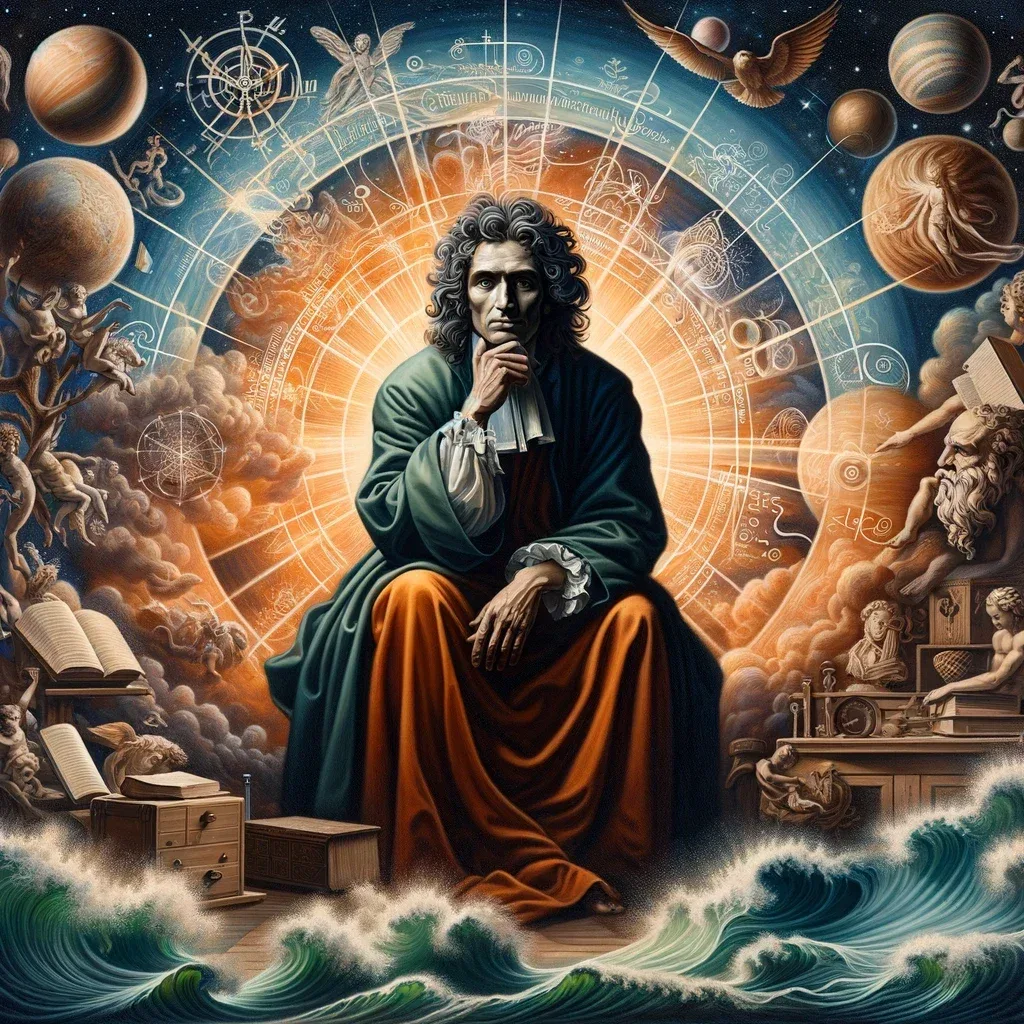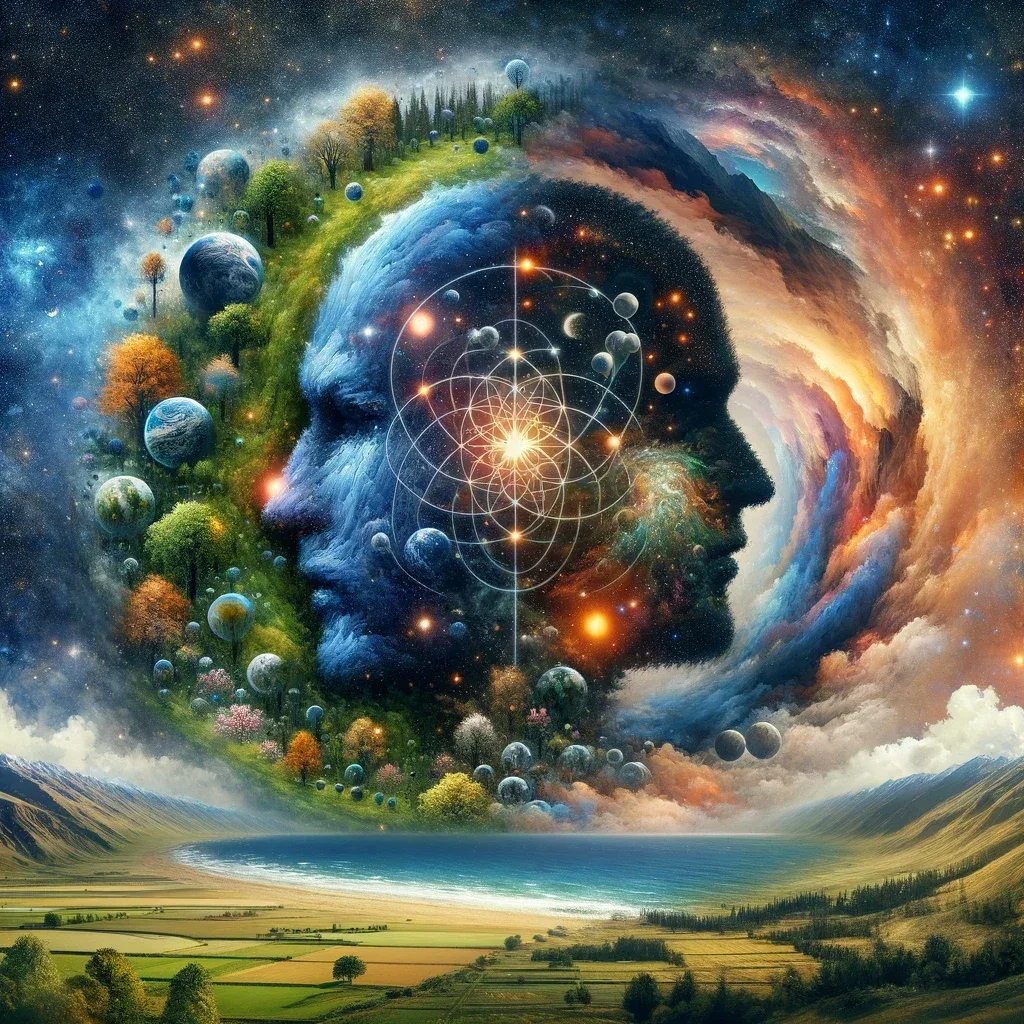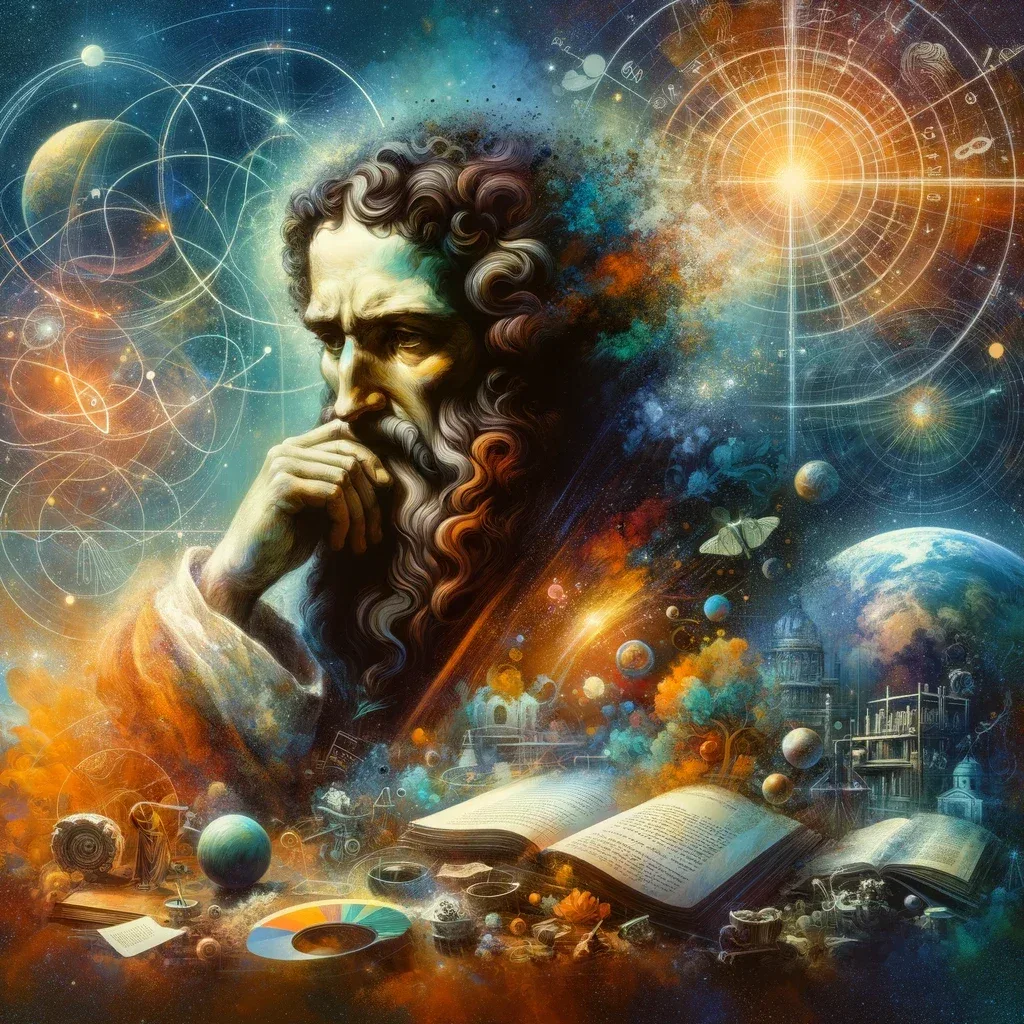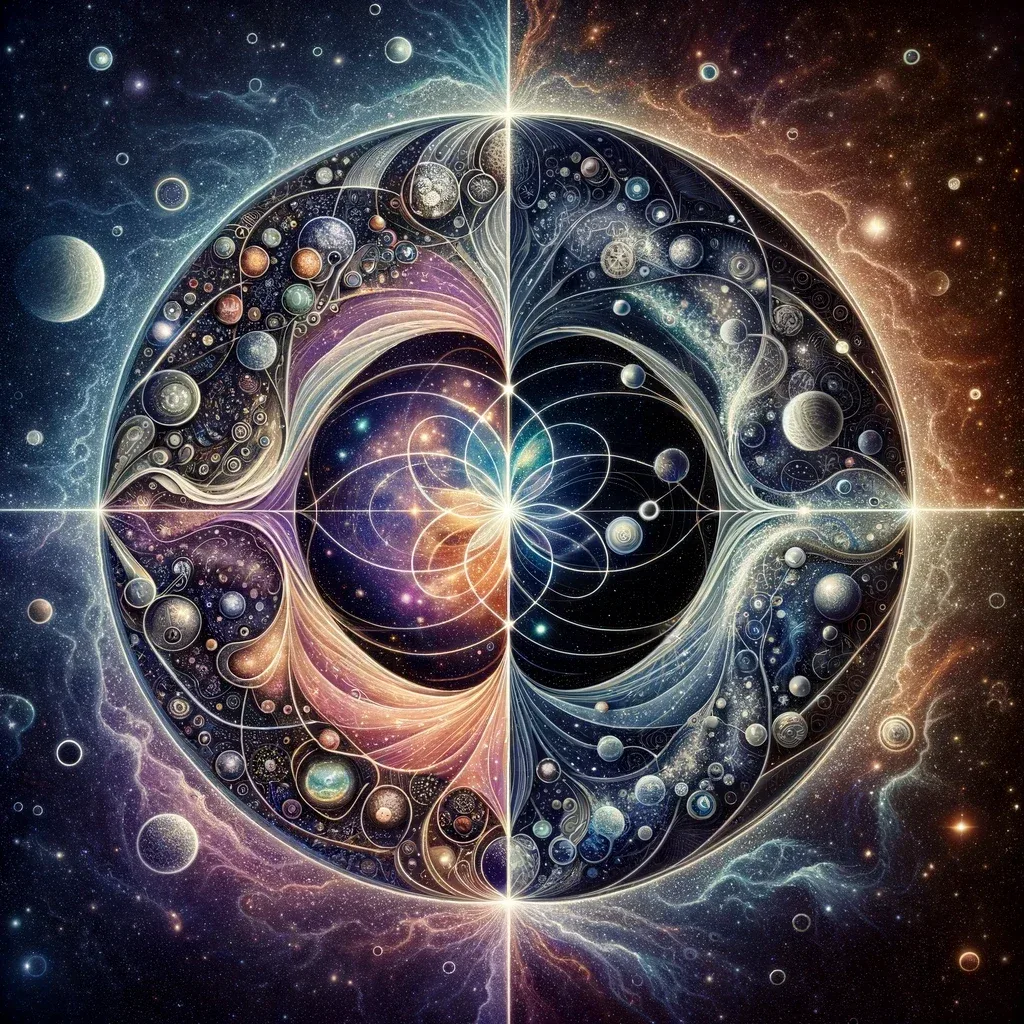The concept of God in the philosophy of Baruch Spinoza, a XNUMXth-century Dutch philosopher, remains one of the most fascinating and debated topics in the history of philosophy. Diverging from traditional notions of a personal and transcendent divinity, Spinoza presents a vision of God that is profoundly immanent and impersonal. This article explores the complex notion of God in Spinoza's thought, discussing its nature, implications and the lasting impact of this view on philosophical and religious thought.

God According to Spinoza

Immanent and Impersonal Nature
Spinoza conceives of God not as a transcendent and personal being, but as the very substance of reality. In his fundamental work, “Ethics”, he identifies God with nature, using the famous expression “Deus, sive Natura” (God, or Nature). For Spinoza, God is the only substance that exists, the source of everything that is.
God as Cause of Himself
According to Spinoza, God is a self-caused entity, existing by his own necessity. There is no external cause for God; He is the immanent cause of all things. This view rejects the idea of a creator who is beyond or separate from the universe.
God and Nature
Spinoza argues that everything in the universe is a manifestation of God. This means that nature, in all its forms, is an expression of divinity. There is no separate entity called God that governs the universe; rather, the universe is God.
Theological and Philosophical Implications

Challenge to Traditional Views
Spinoza's interpretation of God radically challenged conventional notions of divinity present in Judaism, Christianity and Islam. His pantheistic view of God as equivalent to nature was seen as heretical by many of his contemporaries.
Spinoza and Pantheism
Spinoza is often associated with pantheism, the belief that God and the universe are identical. His philosophy is considered one of the most influential and profound formulations of pantheism in the history of Western thought.
Ethics and God
Spinoza's conception of God has profound ethical implications. He argues that understanding God as the substance of everything leads to greater understanding and acceptance of the world. This also promotes a way of life based on reason and intellectual love for God.
Spinoza's God in Modern Life

Contemporary Relevance
Spinoza's concept of God remains relevant in the modern world, offering an alternative to the traditional division between science and religion. He presents a vision that harmonizes nature with divinity, appealing to both religious and secular thinkers.
Influence on Science and Philosophy
Spinoza significantly influenced scientific and philosophical thought, especially in his rational and systematic approach to understanding the universe. His view of God as immanent in the natural world prefigured many developments in modern science.

Practical Application
Spinoza's view of God encourages an approach to life centered on rational understanding, tolerance, and acceptance. This has practical implications for how we live our lives, deal with challenges, and interact with others and the world around us.
Conclusion
Spinoza's God is a revolutionary notion that challenges the boundaries between the sacred and the profane, the divine and the mundane. His immanent and impersonal vision of God continues to inspire and provoke, offering a unique perspective on divinity, ethics, and the nature of the universe. By exploring and understanding Spinoza's God, we are invited to look at the world and our existence in a profoundly new and enriching way.

Achieve inner tranquility: learn the principles of stoicism
Find peace of mind and lasting happiness by learning to accept what you can't control and focus your energy on what really matters, with Stoic philosophy.
BUY NOW
FAQ about Spinoza's God
This Frequently Asked Questions (FAQ) section provides detailed clarifications on the concept of God in Spinoza's philosophy, addressing the most common questions related to this intriguing topic.





